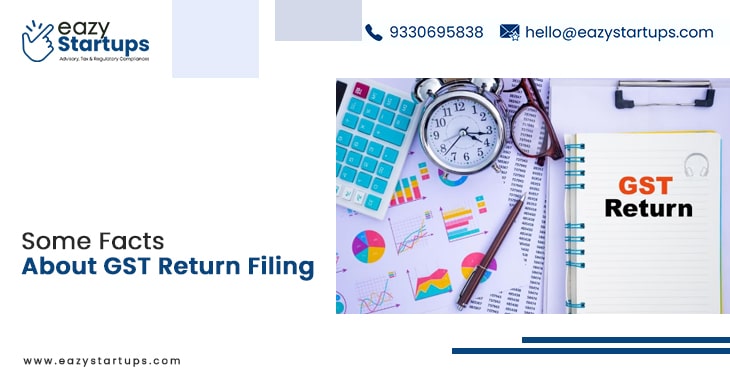Every value addition is subject to the comprehensive, multi-stage, destination-based Goods and Services Tax (GST). GST, implemented in India on July 1, 2017, brought uniformity and subsumption of numerous levies, revolutionizing the indirect tax structure. The timely and accurate submission of GST returns is one of the most important components of GST compliance. If you apply for GST Return Filing Online, contact Eazy Startups.
Here’s why GST return filing is essential for businesses:-
1. Legal Compliance
2. Claiming Input Tax Credit (ITC
3. Encouraging Business Operations
4. Enhancing Business Credibility
5. Preventing Penalties and Interest
6. Accurate Financial Reporting
7. Simplifying Tax Audits
8. Contributing to National Development
Legal Compliance:
Filing GST returns is a legal requirement for companies registered under the GST framework. Noncompliance may result in severe fines, penalties, and legal ramifications. Ensuring that your firm complies with the GST law’s restrictions through the timely filing of returns helps you stay out of conflict with the law and have good standing with tax authorities.
Claiming Input Tax Credit (ITC):
The provision of Input Tax Credit, which enables businesses to claim credit for the tax paid on purchases and hence lower the overall tax bill, is one of the major advantages of GST. To collect ITC, GST returns must be filed accurately and on time. Your cash flow and profitability may be impacted if there is a delay or inconsistency in your filing that results in an ITC refusal.
Encouraging Business Operations:
By preventing disruptions brought on by noncompliance issues, timely and accurate submission of GST returns guarantees seamless business operations. Since being in compliance with GST is frequently a requirement for a number of company operations, including getting loans, permits, and participating in tenders, it aids in maintaining a smooth flow of products and services across state borders.
Enhancing Business Credibility:
Completing GST returns regularly improves your company’s reputation. Before conducting business, financial institutions, suppliers, and customers frequently verify the status of GST compliance. A spotless compliance history will enhance your company’s standing and foster stakeholder trust, opening up new commercial avenues and collaborations.
Preventing Penalties and Interest:
Failing to file GST returns on time or at all results in penalties and interest. For ordinary taxpayers, the penalty for submitting late is Rs. 50 per day; for taxpayers with no tax liability, it is Rs. 20 per day, up to a maximum of Rs. 5,000. In addition, there is an annual 18% interest charge on the outstanding tax liability. Frequent filing assists in avoiding these needless financial obligations.
Accurate Financial Reporting:
Careful record-keeping and routine sales and purchase data reconciliation are necessary when filing a GST return. This procedure assists companies in keeping transparent and well-organized records and encourages accurate financial reporting. Accurate financial accounts are crucial for ensuring a business’s overall health, securing investments, and making decisions.
Simplifying Tax Audits:
The accurate and consistent filing of GST returns simplifies tax audits and assessments carried out by tax authorities. A company can save time and effort by expediting audits and reducing scrutiny with well-maintained records and compliance histories.
Contributing to National Development:
Businesses contribute to national revenue by filing their GST returns on time, essential for economic growth. The government receives much of its funding from the GST, which is used for public services, including social assistance and infrastructure development.
Conclusion
The significance of filing a GST return goes beyond only adhering to the law. It is essential to maintaining the company’s growth, financial stability, and efficiency. Businesses can obtain input tax credits, preserve credibility, avert fines, guarantee accurate financial reporting, and advance the growth of their country by submitting their returns on time. Maintaining compliance with GST standards is essential and a competitive advantage in today’s corporate world. If you apply for GST Return Filing Online, contact Eazy Startups.









Recent Comments